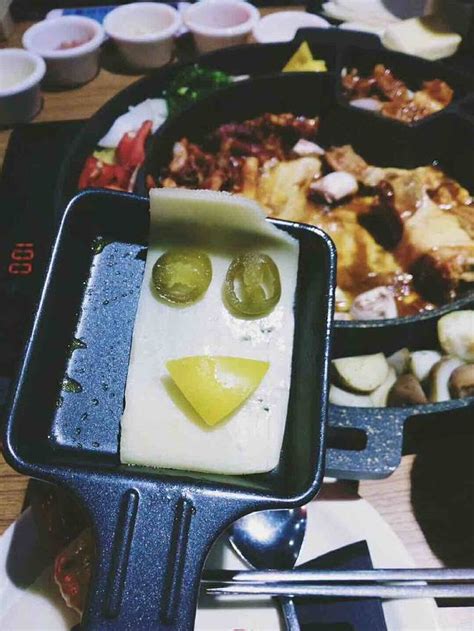老北京火炉子
Exploring Beijing's Hotpot Dining Scene
Hotpot dining in Beijing is not just a culinary experience; it's a cultural phenomenon deeply ingrained in the city's social fabric. Let's delve into this sizzling world of communal dining and explore what makes Beijing's hotpot scene so unique.
Origins and History:
Hotpot, known as "huǒ guō" (火锅) in Mandarin, has a rich history dating back over a thousand years. Its origins can be traced to the Northern Song Dynasty (9601127 AD), where it was initially enjoyed by the royal court and later popularized among the masses. Over the centuries, hotpot evolved into a beloved culinary tradition celebrated across China.
The Beijing Experience:
In Beijing, hotpot isn't just a meal; it's an event. Picture a bustling restaurant filled with the sounds of bubbling broth, laughter, and lively conversation. Groups of friends and family gather around a steaming pot, eagerly awaiting the chance to dip an array of fresh ingredients into the simmering broth.

Types of Hotpot:
Beijing offers a variety of hotpot styles to suit every palate. The two most popular types are:
1.
Mongolian Hotpot (蒙古火锅):
This style features a divided pot with one side filled with mild broth and the other with spicy broth. Diners can customize their experience by choosing from an assortment of meats, seafood, vegetables, and noodles to cook in the simmering broth.2.
Spicy Sichuan Hotpot (麻辣火锅):
Originating from neighboring Sichuan province, this fiery hotpot is known for its numbingly spicy broth infused with Sichuan peppercorns and chili peppers. It's not for the faint of heart but promises an unforgettable culinary adventure.Key Ingredients:
The beauty of hotpot lies in its simplicity and versatility. From thinly sliced meats like beef, lamb, and pork to an array of fresh seafood including shrimp, fish balls, and squid, there's something for everyone to enjoy. Vegetarians can indulge in an assortment of tofu, mushrooms, leafy greens, and other plantbased delights.
Dipping Sauces:
No hotpot experience is complete without an assortment of dipping sauces to enhance the flavors of your cooked ingredients. Common sauces include sesame sauce, soy sauce, garlic paste, and chili oil. Diners can mix and match to create their perfect flavor combination.
Etiquette and Customs:
Hotpot dining in Beijing comes with its own set of customs and etiquette:
Cooking Times:
Different ingredients require varying cooking times, so it's essential to know when to dip and when to retrieve.
Sharing is Caring:
Hotpot is a communal dining experience, so be prepared to share your culinary creations with your dining companions.
Respect the Broth:
The broth develops rich flavors as the meal progresses, so it's customary to start with milder ingredients and gradually move on to heartier fare.Popular Hotpot Chains:
While Beijing boasts countless hotpot establishments, several chains have gained widespread acclaim for their quality and consistency. Some notable names include Haidilao Hotpot (海底捞火锅), Xiaolongkan Hotpot (小龙坎火锅), and Xiabu Xiabu (呷哺呷哺).
Tips for Enjoying Hotpot in Beijing:
1.
Arrive Early:
Hotpot restaurants can get crowded, especially during peak dining hours, so it's best to arrive early to secure a table.2.
Choose Your Broth Wisely:
Whether you prefer mild or spicy, selecting the right broth sets the tone for your entire dining experience.3.
Experiment with Ingredients:
Don't be afraid to try new things! Hotpot offers a plethora of ingredients waiting to be explored.4.
Savor the Experience:
Hotpot dining is as much about the company as it is about the food, so take your time, relax, and enjoy the convivial atmosphere.Conclusion:
Beijing's hotpot scene is a testament to the city's rich culinary heritage and vibrant social culture. Whether you're a seasoned hotpot aficionado or a curious newcomer, a hotpot adventure in Beijing promises an unforgettable gastronomic journey filled with flavor, fun, and camaraderie. So gather your friends, fire up the pot, and let the feast begin!
本文 同格科技网 原创,转载保留链接!网址:http://www.tonggekeji.com/post/3441.html
1.本站遵循行业规范,任何转载的稿件都会明确标注作者和来源;2.本站的原创文章,请转载时务必注明文章作者和来源,不尊重原创的行为我们将追究责任;3.作者投稿可能会经我们编辑修改或补充。









